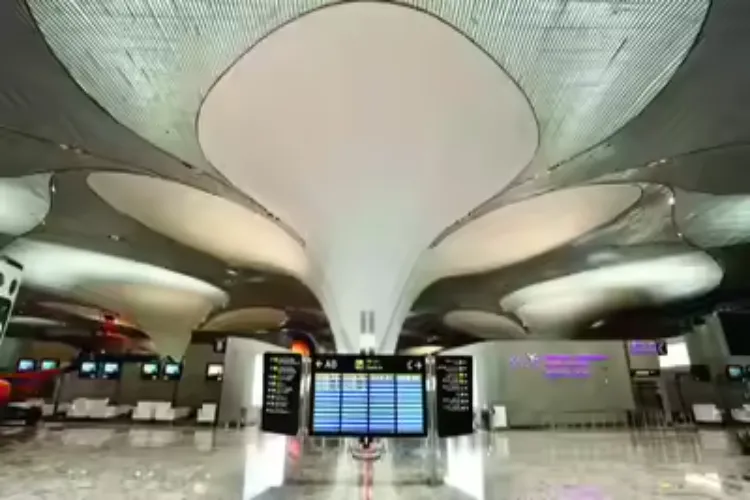
Mumbai
PM Modi to open Navi Mumbai International airport on Oct 8
Spanning 1,160 hectares, NMIA is being developed under a public-private partnership between Adani Airport Holdings (74%) and CIDCO (26%). Its lotus-inspired design blends Indian heritage with state-of-the-art sustainable engineering, making it one of Asia's most advanced airports.
Phase 1 will handle 20 million passengers annually with one runway and terminal. At full capacity, NMIA will feature four terminals and two runways, raising Mumbai's combined capacity with CSMIA to 155 million passengers per year. The airport will also become a major cargo hub, scaling from 0.5 million to 3.2 million tonnes annually, supported by a fully automated, AI-enabled terminal.
The project is expected to generate over 2 lakh jobs across aviation, logistics, IT, hospitality, and real estate, with sustainability features including renewable energy, rainwater harvesting, and passive cooling. The DGCA granted its aerodrome license on October 1.
India's aviation sector is witnessing unprecedented growth. Operational airports have increased from 74 in 2014 to 163 in 2025, with a target of 400+ by 2047. Passenger traffic is projected to double to 500 million by 2030, while cargo volumes are expected to triple to 10 million tonnes, positioning India as a global aviation hub.
Adding to its international credentials, India was re-elected to the International Civil Aviation Organization (ICAO) Council, securing more votes than in 2022. A founding member since 1944, India has maintained an unbroken presence for 81 years, playing a leading role in shaping global aviation safety, security, sustainability, and inclusive growth. The Civil Aviation Secretary represented India at the Assembly, highlighting the country's leadership in international civil aviation.
ALSO READ: Muslims have no monopoly on Muhammad
Under the visionary leadership of Prime Minister Narendra Modi, the Ministry of Civil Aviation has ushered in an era of transformative growth and innovation in India's aviation sector. Driven by groundbreaking legislative reforms, extensive infrastructure expansion, and an unwavering commitment to connectivity, safety, and sustainability, the Ministry has achieved landmark milestones, positioning India among the world's leading aviation markets.
